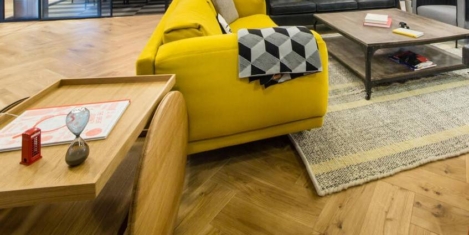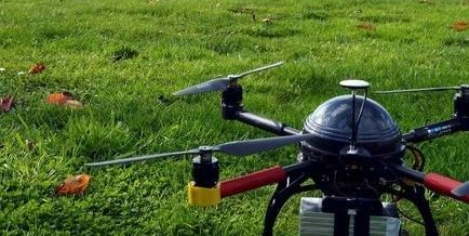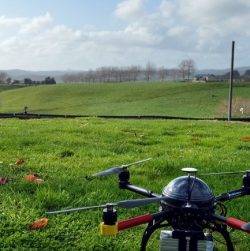To provide the best experiences, we use technologies like cookies to store and/or access device information. Consenting to these technologies will allow us to process data such as browsing behaviour or unique IDs on this site. Not consenting or withdrawing consent, may adversely affect certain features and functions.
The technical storage or access is strictly necessary for the legitimate purpose of enabling the use of a specific service explicitly requested by the subscriber or user, or for the sole purpose of carrying out the transmission of a communication over an electronic communications network.
The technical storage or access is necessary for the legitimate purpose of storing preferences that are not requested by the subscriber or user.
The technical storage or access that is used exclusively for statistical purposes.
The technical storage or access that is used exclusively for anonymous statistical purposes. Without a subpoena, voluntary compliance on the part of your Internet Service Provider, or additional records from a third party, information stored or retrieved for this purpose alone cannot usually be used to identify you.
The technical storage or access is required to create user profiles to send advertising, or to track the user on a website or across several websites for similar marketing purposes.
 Nearly two-thirds of corporate occupiers (62 percent) plan to increase their investment in real estate technology over the next three years, most of them in the next year, according to the 2018 EMEA Occupier Survey from CBRE. Companies are intending to invest more heavily in new real estate technologies over the short to medium term in order to enhance the user experience and raise workforce productivity. This represents a clear move away from aiming real estate technology at purely operational goals such as energy management.
Nearly two-thirds of corporate occupiers (62 percent) plan to increase their investment in real estate technology over the next three years, most of them in the next year, according to the 2018 EMEA Occupier Survey from CBRE. Companies are intending to invest more heavily in new real estate technologies over the short to medium term in order to enhance the user experience and raise workforce productivity. This represents a clear move away from aiming real estate technology at purely operational goals such as energy management.













 The majority of employers want students to have work experience to help acquire leadership skills, yet not even a third say they actually offer placements. This is according to new research published today by the Chartered Management Institute (CMI) which is calling on employers to collaborate with business schools and universities in creating courses to provide future leaders. The Chartered Management Institute’s 21st Century Leaders report found that seven in 10 (70 percent) of prospective employers now want management, enterprise and leadership modules made available to all higher education students to improve their work-ready skills. Two-thirds (66 percent) of employers say they want to see graduates achieve professional qualifications as well as their main degree. The growing emphasis on graduate employability has been driven by employers concerned about skills shortages, with 82 percent of employers reporting problems recruiting managers. A majority of managers (85 percent) said work experience should be embedded into courses to help develop these skills and make students more employable. Yet only 29 percent of businesses work with business schools to offer placements.
The majority of employers want students to have work experience to help acquire leadership skills, yet not even a third say they actually offer placements. This is according to new research published today by the Chartered Management Institute (CMI) which is calling on employers to collaborate with business schools and universities in creating courses to provide future leaders. The Chartered Management Institute’s 21st Century Leaders report found that seven in 10 (70 percent) of prospective employers now want management, enterprise and leadership modules made available to all higher education students to improve their work-ready skills. Two-thirds (66 percent) of employers say they want to see graduates achieve professional qualifications as well as their main degree. The growing emphasis on graduate employability has been driven by employers concerned about skills shortages, with 82 percent of employers reporting problems recruiting managers. A majority of managers (85 percent) said work experience should be embedded into courses to help develop these skills and make students more employable. Yet only 29 percent of businesses work with business schools to offer placements.
 The construction industry needs new talent and skills to help in the adoption of new technologies to meet the challenges of digital transformation. It must also become more diverse, including increasing the percentage of women in the industry. These are the recommendations of a new report from the World Economic Forum, developed in collaboration with The Boston Consulting Group (BCG), Shaping the Future of Construction: An Action Plan to solve the Industry’s Talent Gap. The report argues that the Infrastructure and Urban Development (IU) industry has failed to innovate as quickly as other sectors, resulting in stagnating productivity and negative effects on the economy, society and the environment. An ongoing industry-wide shortage of qualified workers is among the key reasons for this issue. It has undermined project management and execution, adversely affecting cost, timelines and quality. It also has impeded the adoption of new digital technologies, such as building information modelling (BIM), automated equipment and cloud-based collaboration tools, which could improve productivity. The report provides twelve key actions which needs to be implemented to close the structural talent gap of the construction industry.
The construction industry needs new talent and skills to help in the adoption of new technologies to meet the challenges of digital transformation. It must also become more diverse, including increasing the percentage of women in the industry. These are the recommendations of a new report from the World Economic Forum, developed in collaboration with The Boston Consulting Group (BCG), Shaping the Future of Construction: An Action Plan to solve the Industry’s Talent Gap. The report argues that the Infrastructure and Urban Development (IU) industry has failed to innovate as quickly as other sectors, resulting in stagnating productivity and negative effects on the economy, society and the environment. An ongoing industry-wide shortage of qualified workers is among the key reasons for this issue. It has undermined project management and execution, adversely affecting cost, timelines and quality. It also has impeded the adoption of new digital technologies, such as building information modelling (BIM), automated equipment and cloud-based collaboration tools, which could improve productivity. The report provides twelve key actions which needs to be implemented to close the structural talent gap of the construction industry.


 Most people who work in HR now recognise how essential technology is for delivering more strategic value to their organisation, but a new report suggests that HR teams are not prepared to meet the
Most people who work in HR now recognise how essential technology is for delivering more strategic value to their organisation, but a new report suggests that HR teams are not prepared to meet the 














March 20, 2018
Enter the MIPIM bandwagon, towed by pink elephants
by Anna King • Comment, Property, Technology
(more…)